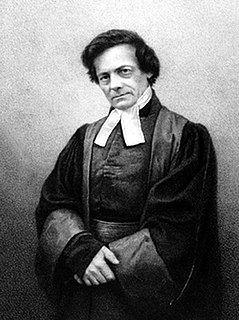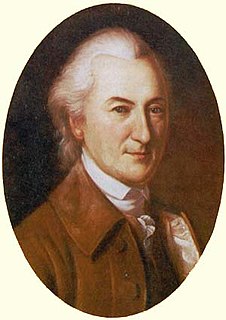A Quote by Baron de Montesquieu
Each citizen contributes to the revenues of the State a portion of his property in order that his tenure of the rest may be secure.
Related Quotes
As property, honestly obtained, is best secured by an equality of rights, so ill-gotten property depends for protection on a monopoly of rights. He who has robbed another of his property, will next endeavor to disarm him of his rights, to secure that property; for when the robber becomes the legislator he believes himself secure.
I ask of each Mason, of each member, of each brother, that he shall remember ever that there is upon him a peculiar obligation to show himself in every respect a good citizen; for after all, the way he can best do his duty by the ancient order to which he belongs is by reflecting credit upon that order by way in which he performs his duty as a citizen of the United States.
I want everyone to keep the property that he has acquired for himself according to the principle: benefit to the community precedes benefit to the individual. But the state should retain supervision and each property owner should consider himself appointed by the state. It is his duty not to use his property against the interests of others among his own people. This is the crucial matter. The Third Reich will always retain its right to control the owners of property.
[A] republic . . . [is] a government, in which the property of the public, or people, and of every one of them was secure and protected by law . . . implies liberty; because property cannot be secured unless the man be at liberty to acquire, use or part with it, at his discretion, and unless he have his personal liberty of life and limb, motion and rest, for that purpose.
In the latter sense, a man has a property in his opinions and the free communication of them. He has a property of peculiar value in his religious opinions, and in the profession and practice dictated by them. He has an equal property in the free use of his faculties and free choice of the objects on which to employ them. In a word, as a man is said to have a right to his property, he may be equally said to have a property in his rights.
There is no portion of our time that is our time, and the rest God's; there is no portion of money that is our money, and the rest God's money. It is all His; He made it all, gives it all, and He has simply trusted it to us for His service. A servant has two purses, the master's and his own, but we have only one.
Michael Bradley has the stuff of leadership; he works hard and can break up the opponent's play. However, that's not enough to justify his philanthropic attitude towards possession, the generous portion of balls that he contributes to his foes. His sloppiness constantly culminates in unnecessary goals.
As in forming a political society, each individual contributes some of his rights, in order that he may, from a common stock of rights, derive greater benefits, than he could from merely his own; so, in forming a confederation, each political society should contribute such a share of their rights, as will, from a common stock of these rights, produce the largest quantity of benefits for them.
Civil rights, as we may remember, are reducible to three primary heads; the right of personal security; the right of personal liberty; and the right of private property. In a state of slavery, the two last are wholly abolished, the person of the slave being at the absolute disposal of his master; and property, what he is incapable, in that state, either of acquiring, or holding, in his own use. Hence, it will appear how perfectly irreconcilable a state of slavery is to the principles of a democracy, which form the basis and foundation of our government.
..every Man has a Property in his own Person. This no Body has any Right to but himself. The Labour of his Body, and the Work of his Hands, we may say, are properly his. .... The great and chief end therefore, of Mens uniting into Commonwealths, and putting themselves under Government, is the Preservation of their Property.

































